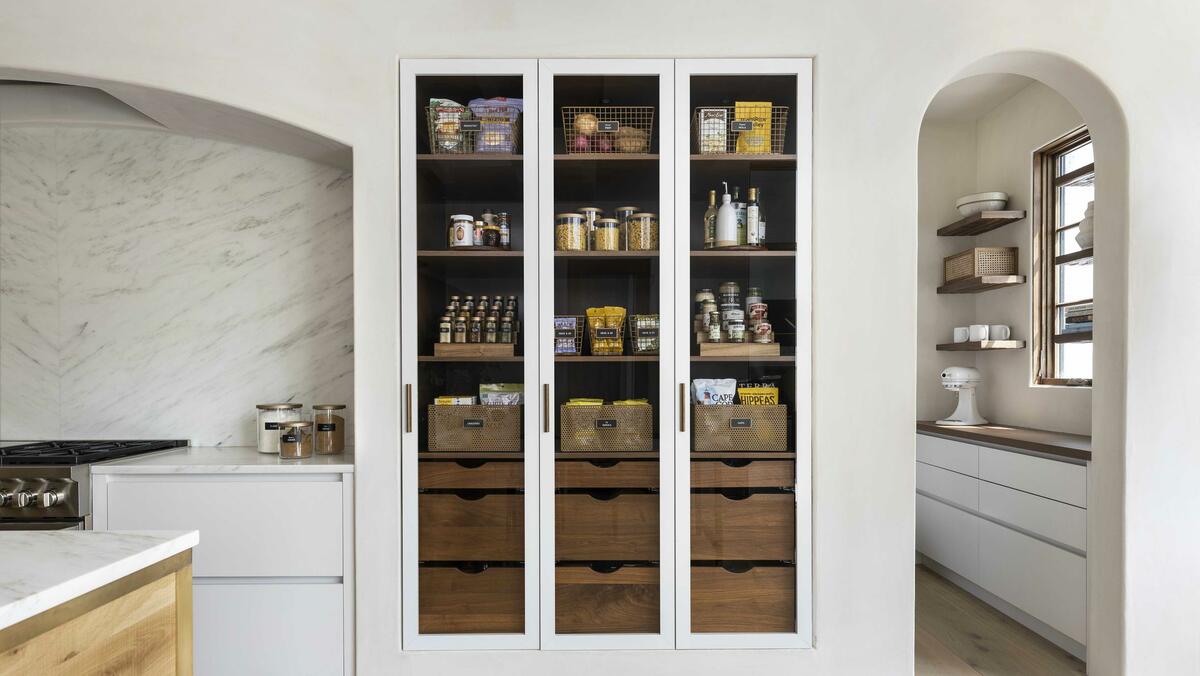It’s not unusual for a brand to be acquired and then sold off a few years later. What is unusual is for a brand to make a round trip: be acquired, then sold back to its original owners. That’s now the case with Neat Method, the home organization company founded by Ashley Murphy, Marissa Hagmeyer and Molly Graves in 2010.
In 2017, the trio sold the company—which had by then blossomed into 20 franchises providing organizational services across North America—to Whitmor, a Southaven, Mississippi–based product manufacturer that specializes in home organization. In 2020, Neat Method debuted a collection of home organization essentials like baskets and drawer dividers just in time to capitalize on the pandemic-induced home boom. After several years operating under Whitmor’s umbrella, Murphy and Hagmeyer (Graves is now a silent partner), have closed a deal to buy the brand back.
“It was a mutual decision between us and Whitmor,” says Murphy. “We’d gotten to a point where we’d outgrown each other. It was almost like we were hindering each other’s businesses with a lot of back and forth.” Murphy says the two companies started talking about the possibility of a sale in October and the terms were finalized in January, though Hagmeyer says it will probably take a year to fully untangle themselves.
When they joined Whitmor, Murphy and Hagmeyer felt like they needed help navigating the world of product development. Now, they feel confident it’s a path they can continue down on their own. “It began to feel like there was a middleman,” says Hagmeyer. “They had existing relationships with manufacturers who weren’t always willing to make product in the way that we want. We want to design everything to be completely original, and, through working with Whitmor, we now feel like we know how to find our own suppliers.
Part of that next phase of product development will include a focus on sustainable materials. “When we started organizing nearly 15 years ago, the only options out there were plastic or acrylic bins,” says Murphy. “After a decade, those don’t look good anymore—they’re scratched or they’re cloudy. It’s not going to have that clean look that you want for a well-organized space. We’re leaning into natural fibers and materials that will age well, and complement interiors in a more natural way.”

The company the pair is buying today may have its roots in the brand they sold five years ago, but it has been dramatically transformed. Before the acquisition, Neat Method was valued at $1 million. Murphy and Hagmeyer say that number is now closer to $15 million, a difference that they attribute to a surge in interest during the pandemic, but also to their entry into the product sector. “It’s essentially like we launched a second business,” says Hagmeyer.
The brand’s products are performing well in no small part due to the continued success of their franchises, the number of which has swelled to 100 in the past six years, with locations as disparate as Ottawa, Canada; Bozeman, Montana; and Scottsdale, Arizona. Each franchise is now selling Neat Method spice jars, baskets and other organizing gear to clients. Murphy estimates that 50 percent of the brand’s current product sales originate from franchise owners.
“It’s a full-circle moment,” she says. “They’re marketing and selling the product for us, but they’re also in the field doing research and letting us know what we might need to create in the future. Marissa and I aren’t taking clients and organizing people’s homes personally anymore, so the feedback from our franchise owners is crucial to future product development.
In this next chapter, Murphy and Hagmeyer hope to expand the presence of the product line —currently sold directly on their website, as well as through Food52 and Anthropologie—and add major retailers to their distribution and shorten their delivery times. “We need to be able to compete with the shipping times that customers expect from Amazon,” says Hagmeyer. Mostly, they’re excited to be steering their own ship again, returning to their entrepreneurial roots.
“Not to have anyone else involved and to get back to how we started, as a woman-led business, feels like there’s a lot more opportunity for growth,” says Murphy. “It’s good news.”
Homepage image: Ashley Murphey and Marissa Hagmeyer | Courtesy of Neat Method





























